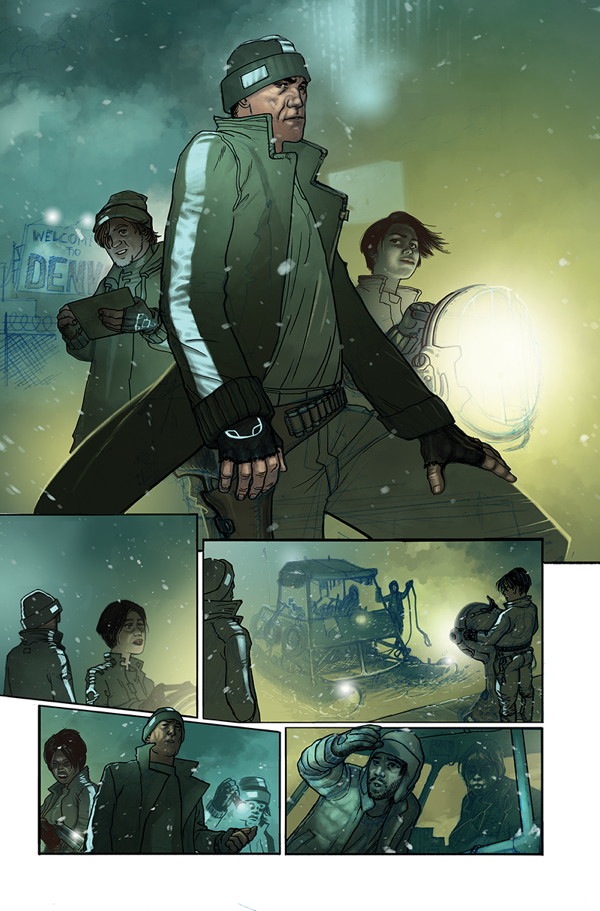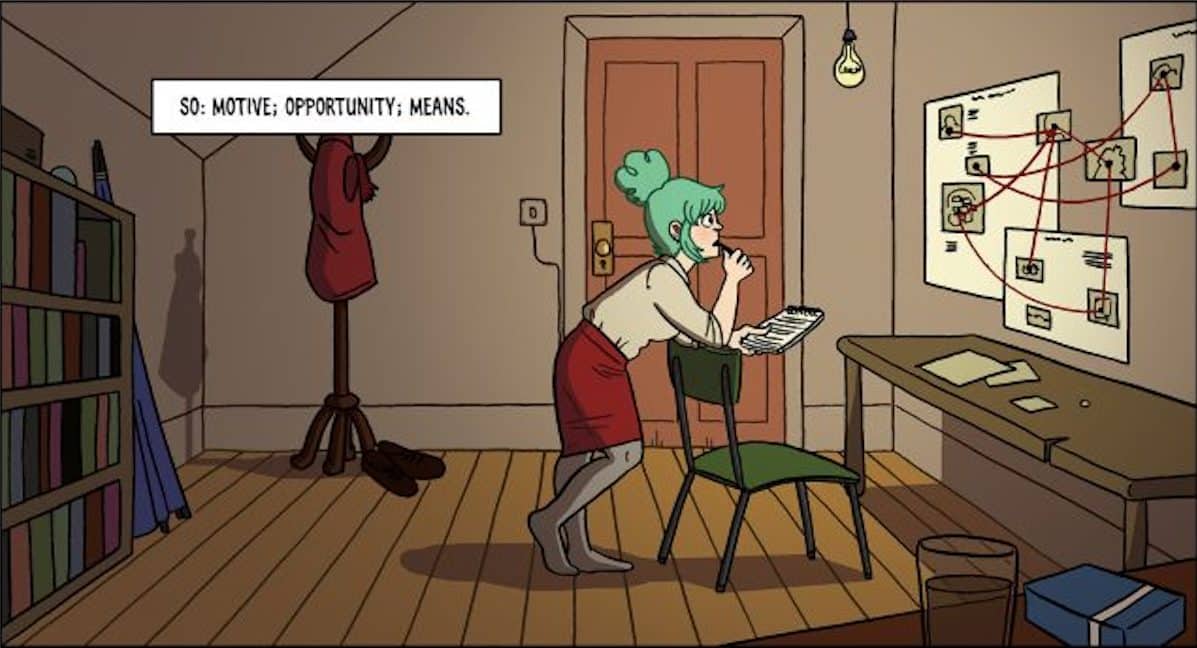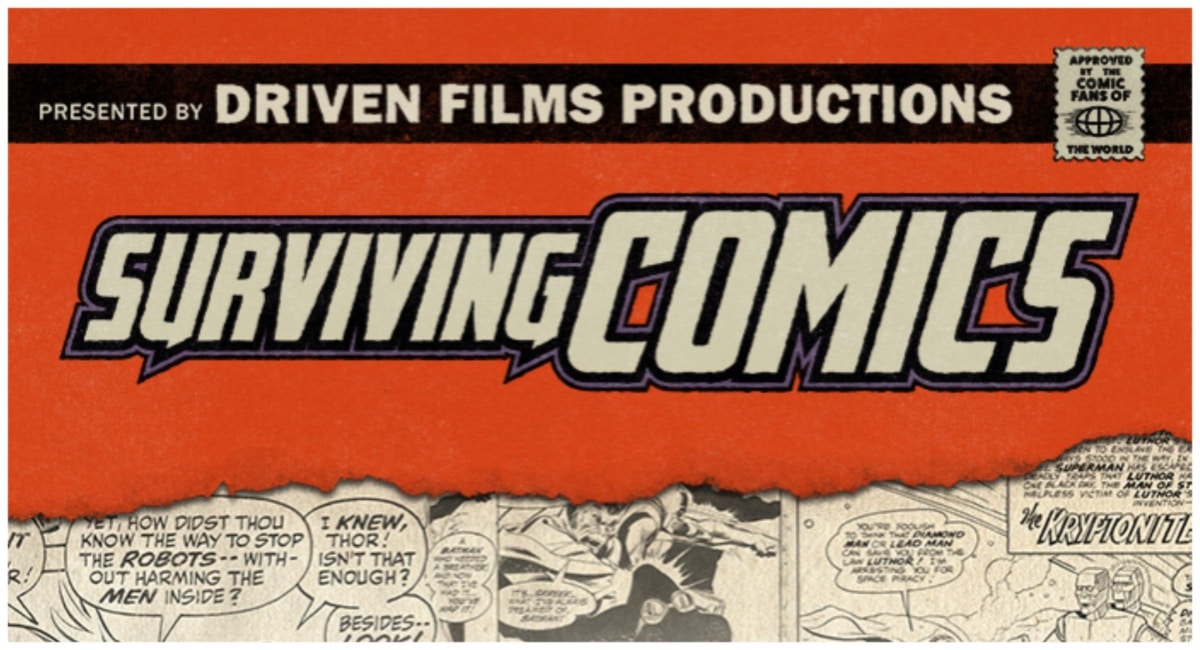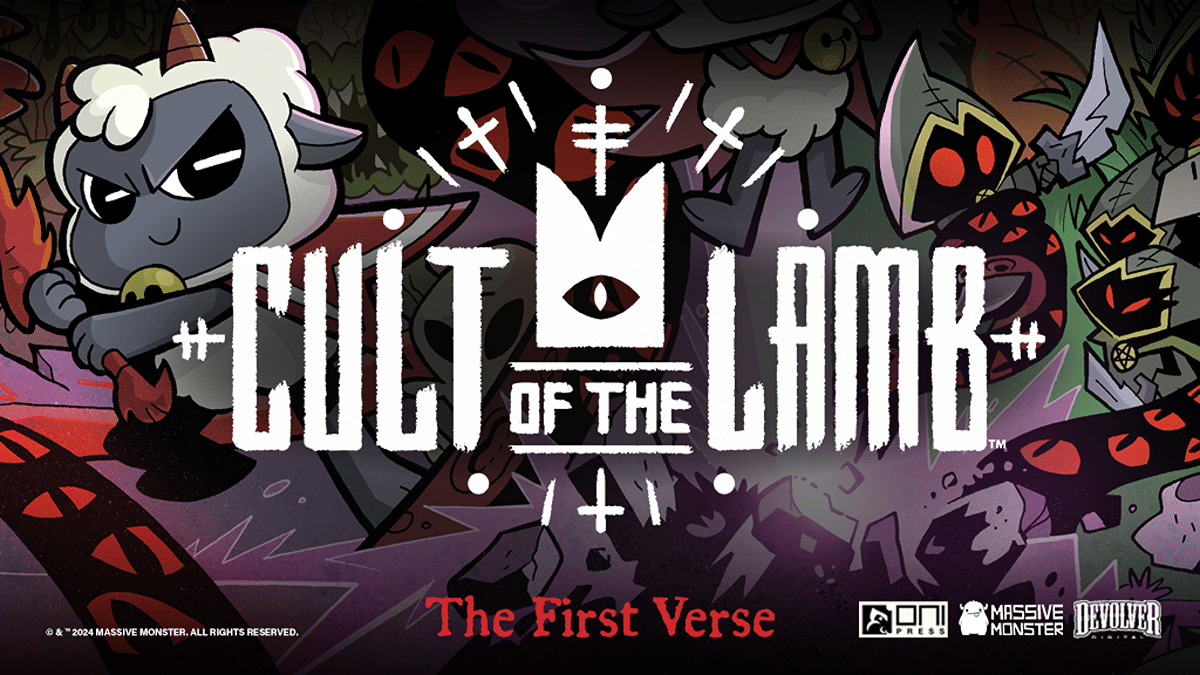[As Kickstarter and other crowdfunding platforms have become mainstays of the creative scene, comics creator Jimmy Palmiotti and his Paper Films colleague Justin Gray have been among those to take full advantage of using this new system to fund a series of stand alone graphic novels. Although well established comics creators with projects at every publisher, they’ve found the new platform to be a way to produce new projects on a far more flexible basis.
To date they’ve started five Kickstarter campaigns and today launched the sixth, Denver, with art by Pier Britto, and lettering and design by Bill Tortolini—as well as a soundtrack. As well as explaining the thinking behind the book, Palmiotti explains a little of how he’s used Kickstarter, how it integrates with print, and where he sees it going. It’s an interesting talk from one of the savviest creators in comics.]
THE BEAT: Just to get the record staright, how many Kickstarter books have you done?
PALMIOTTI: Denver is the 6th Kickstarter for us. Its also the most aggressive in a number of ways because we are asking for a bit more money since the production of the book cost so much. The extra cost is in the art, the production of the book itself and adding a soundtrack to the project, something we never did before.
THE BEAT: What is Denver about? What inspired it?
PALMIOTTI: Denver is inspired partly by my love of European comic book artists and the books they have done that I grew up on. Both Justin and I have a real affection for the sci-fi genre and we put together a story about one man, Max Flynn, A boarder patrol enforcer, trying to control something much bigger than himself in a post-disaster city of the future. The science fiction elements are there visually, but the feel of the story is very grounded and the main core is all about love and loss and what someone would do for the person they care the most about in the world.
THE BEAT: I’m sure you’ve heard, as I have, that Kickstarter will die any day now, but it seems to be here to stay instead. How has your crowdfunding strategy evolved as you’ve used it?
PALMIOTTI: I never thought it would die, just evolve, like any good idea. That evolution happened for us since the first Kickstarter as well. When we first started it, we had a ton to learn about what you can and cannot offer and the limitations of things like shipping and printing. The most important thing for us is to keep the goal price realistic and factor in everything down to the smallest details like damaged packages, paper and print quality and shipping charges overseas. The thing you do learn quickly is how time consuming it is and how this process of doing them is not for anyone even remotely lazy.
THE BEAT: Have you changed your approach since you started using crowdfunding? Anything that works or doesn’t work?
PALMIOTTI: What does work is keeping the people that invested in your project happy. Making sure they know you are on the other side of the package handling it from beginning to end and keeping them in the loop along the way with steady updates and such. Customer service is a huge thing with these projects and even after all the books are delivered, we are still talking and handling people from past Kickstarters that have forgotten to download books and so on. The great thing is that they can always communicate to us their problems and we get right on it and make sure they are happy. It’s one of the reason we have so many repeat customers. What doesn’t work is a simple one, the idea of promising things that you cannot deliver or a book that cannot be completed. We pay for the production of the book ahead of time to make sure we have the book ready to go when the Kickstarter is over and don’t keep people waiting for 6 months. The wait tends to alienate people to Kickstarter. We roll any profit we have from the past Kickstarters into the new project and when backed, we can pay the balance to our crew for the time they put into everything. If the Kickstarter fails, I make sure to take care of everyone out of pocket by working harder elsewhere. It’s a responsibility I will never ignore.
THE BEAT: Some Kickstarters use fulfillment companies to help them with rewards. Is this necessary for you or have you considered it?
PALMIOTTI: We have been offered it a couple of times, but I have to be honest, we feel it is our duty to pack each and every package. People know I am personally packing these by my horrible handwriting inside and terrible tape jobs, but I think that’s the fun part of the process I would never give up. We have kept these small enough that they take up the front of my house for a month as a staging area, but there is nothing more satisfying than seeing the names of the people supporting our books and recognizing them from other Kickstarters. I think giving it to a company makes it a bit colder and less grass roots and in the end feels like it’s an amazon type situation. I know when I support Kickstarters I enjoy the personal touches.
THE BEAT: While I’m a little hazy on this, I know you publish some of your Kickstarter projects through Image. How do you balance the two audiences, backers and “newsstand.”
PALMIOTTI: The first two books were published by Image comics. Queen Crab andRetrovirus
and I learned that although they came out beautiful, to make money publishing a hardcover like those I still need to sell a few more thousand that I have already, so they haven’t made a dime of profit yet. Over time, but not very soon. With all the ones after we have limited the print run to the orders and other than digitally on Paperfilms.com or Comixology, digital is the only way to get them.
I am in talks with two companies right now that want to publish the Kickstarters in another format and we shall see how that goes, but for now, they are staying with the Kickstarter supporters only. The plan is if they ever do get published elsewhere, we will change the covers, take out and swap some material and so on, to make sure the Kickstarter people have the only version of the book that way. What also makes them stand out is that they are all autographed and we list the backers of the project in our thank you section. I am really happy to say that you hardly ever see our books on EBAY. The people that have them stick with them.
THE BEAT: Any other thoughts on the evolution of crowdfunding and how it affects creators?
PALMIOTTI: I think its great for certain creators who have built up some followers and for people that are new and have an exciting idea to get out there. I think it all comes down to the presentation and look of the project. For some it works well…and for others, it doesn’t. I think it’s a case-by-case thing. I will say if you are doing Kickstarters and asking people for money, you better back some yourself and deliver the best product you can. Word of mouth can work both ways.












As always, Listen to Jimmy!
Comments are closed.